- Home
- Linda Lael Miller
An Outlaw's Christmas Page 13
An Outlaw's Christmas Read online
Page 13
“I made more coffee,” she said, noting the pallor in Sawyer’s face.
He merely nodded, and went on into the bedroom. She heard the bedsprings creak as he lay down.
“He might have overdone things a little,” Doc remarked quietly, taking off his hat and coat and hanging them both in the cloakroom.
Piper didn’t comment on the understatement. “Coffee?” she said instead.
Doc nodded. “Please,” he said, looking around for a place to sit down. He was a sturdy man, so none of the students’ desks would have held him.
Piper pointed to the chair behind her desk, and he took it gratefully. “I’m a dentist,” he said, as though to remind himself and the world at large of his true calling.
She poured his coffee and took it to him, with a slight, sympathetic smile, barely resisting the temptation to pat his shoulder reassuringly and say, “There, there.”
Clay came in, having tended to Sawyer’s horse, and looked around for his cousin.
“Sawyer’s resting,” Piper said. “Coffee?”
“Got any whiskey?” Clay asked.
“Sorry,” Piper replied, with a little shake of her head.
Clay sighed and said, “I’ll take the coffee, then, please.”
While Piper poured the brew, he went into the bedroom, stayed a few moments, and came back with the rocking chair. He offered it to Piper and, when she refused with a shake of her head, sank into it with an exhalation of breath.
Piper gave him the mug. “Did you send that wire?” she asked Clay, keeping her voice down even though she was fairly sure Sawyer wouldn’t overhear her anyway. “To the federal marshal in Austin, I mean?”
“Yes,” Clay said, after taking a sip of his coffee. “And I told him Duggins claimed he’d been hired by a fellow named Vandenburg.”
“Well, then,” Piper said, unable to hide her relief, “no doubt someone will investigate.” And, thus, she deduced, Sawyer would not go riding off, the moment he was physically able, to confront the man who’d wanted him dead.
Clay pondered that for a while, then said ruefully, “Sawyer was right. It’s mainly hearsay. The marshal might question Vandenburg, but unless he admits to hiring Duggins, the man’s not likely to be arrested.”
Piper felt something curl up tight in the bottom of her stomach. How did Dara Rose bear it, being married to a lawman? Was she afraid for Clay every time he pinned on his badge, strapped on a gun belt, and left home to do his job?
“Then Sawyer won’t be able to get him to admit anything, either,” she reasoned, her tone bordering on pettish, though what she really felt was fear.
“Vandenburg hired a killer,” Clay reminded her flatly, “and Sawyer was shot. Something has to be done, Piper.”
“Maybe Mr. Duggins committed the crime all on his own,” Piper argued, more than a little frantic now. “He was a criminal. It could be that Mr. Vandenburg knew nothing about the plan.”
“Yes,” Clay said dryly, “and St. Nicholas might join us for Christmas Eve supper at the ranch. Men like Duggins don’t act on their own, Piper. They take orders from somebody else.”
Doc Howard cleared his throat just then, reminding both Clay and Piper of his presence. It was strange how such a large personage could take up so little thought-space that he went unnoticed.
Piper glowered at Clay and then at Doc, for good measure, and marched into the bedroom to check on Sawyer.
He lay sprawled atop the covers, with his muddy boots on the bed, further staining the already ruined quilt, but Piper’s ire ebbed like an outgoing tide at the sight of him.
She approached Sawyer’s bedside, smoothed his hair back from his forehead, and smiled a little. The future was full of uncertainty, but, for this moment at least, he was alive and safe, where she could see him, touch him.
She loved Sawyer McKettrick, she realized. What else could this feeling of sweet desolation mean?
Sawyer didn’t open his eyes, but he took her hand in his, gave her fingers a brief squeeze, as if he’d read her mind.
Tears brimmed along her lower lashes as she bent and placed the lightest of kisses on his forehead. I love you, she told him silently, and then slipped out of the room because Doc had come in again, his sleeves rolled up and his hands still wet from washing, a basin of clean water in his hands and a roll of bandage cloth under one elbow.
Clay was still in the rocking chair when she returned, looking at the Christmas tree, and he stood up quickly when he realized she was there.
“Sit down, Clay,” she said quietly.
But Clay shook his head. “I’d best be heading for home, anyway,” he said. “There’s not much I can do here, and Dara Rose will be watching the road for me.”
Piper nodded, thick-throated again. One of these days, she reckoned, she might be “watching the road,” too—for Sawyer. Only, unlike Clay, he might never come back to her.
She brought herself up short. She wasn’t a real wife to Sawyer, after all, and the schoolhouse wasn’t their home. When he was well enough, her “husband” would go his way, and she would go hers.
Clay had read her expression before she realized he was looking at her, guessing her thoughts, and he laid a brotherly hand to one side of her face.
“Give Sawyer a little time,” he said. “He’ll get things straight in his head pretty soon.”
“He’s leaving,” she said, not meaning to but unable to hold back the certainty that it was so.
“I reckon if Sawyer goes anywhere, he means to take you right along with him,” Clay replied, very quietly. “I know you have your doubts, Piper, but Sawyer didn’t marry you just to save your reputation. He’s a fine man, but he’s no martyr, and he could have handled this situation a dozen different ways without standing up with you in front of a preacher.”
“Name one,” Piper challenged, too proud to cry but wanting to, wanting to very, very much.
Clay chuckled. “Well, he could have sent you to Dara Rose and me, for one thing. There would have been a scandal, sure, but once folks had a chance to jaw about the particulars for a while, they’d have gone on to something else, and you’d be right back here in this schoolhouse, like nothing ever happened. For one thing, teachers aren’t that easy to come by, way out here. The pay’s pitiful, and it’s a hard, lonely life.”
Piper gave a small, strangled laugh. “How comforting,” she said. “What was I worried about, when I have a ‘pitiful’ stipend and a hard, lonely life to look forward to?”
Clay grinned, shook his head. “I’ve never been good with words,” he allowed. “What I’m trying to say is that everything will be all right in the end.”
“I can’t imagine what makes you so sure of that,” Piper observed.
“Just the same,” Clay countered good-naturedly, “I am sure. Besides, it’s almost Christmas. Have a little faith, will you?”
Have a little faith, will you?
Clay’s offhand injunction played in Piper’s mind long after Doc and Clay had both left the schoolhouse.
Easy enough for him to say, she concluded, as she built up the fire and rummaged through the food box in the cloakroom for the makings of a simple meal.
Upon awakening, Sawyer still looked like hell-warmed-over, but he insisted on joining her in the schoolroom for supper. She gave him the desk chair again, and refrained from conversation since he looked a mite grumpy. His fresh bandages were bulky under his sling, and perhaps a little too tight.
“Clay’s gone home?” he asked, finally.
Piper refrained from pointing out the obvious. “Yes,” she said mildly. “He fed and watered Cherokee before he left, and brushed him down, too.”
Sawyer nodded, thanked her when she put a plate in front of him, containing scrambled eggs, some fried ham, and two thick slices of bread toasted on to
p of the stove. Ate slowly and awkwardly, and with a dignity that pinched Piper’s heart.
“In a few days, it will be Christmas,” she said, finding the silence unbearable.
“Yes,” Sawyer said dully. She knew without asking what was bothering him, or part of it, at least. The aftermath of a death was always sobering, and on top of that, he’d found riding a horse, something he’d probably done almost every day of his life, with unthinking ease, to be suddenly difficult.
“I wonder how Bess is holding up,” Piper said. She’d nibbled on some toasted bread earlier, while cooking, but she really wasn’t very hungry, so she hadn’t filled a plate for herself.
“To hear Doc tell it,” Sawyer answered, his eyes bleak, “she’s got other concerns. Her little girl’s come down with something.”
“Ginny-Sue is sick?” Piper asked, immediately concerned.
Sawyer nodded. “Doc wanted to go and see her, but his wife put her foot down. Said she’d leave him, and take their daughter with her, if he showed his face in a brothel, no matter what the reason.”
Piper thought of Ginny-Sue’s beaming delight over memorizing the second chapter of Luke, her parting assurance that Christmas would happen for certain now, with the big snowstorm over.
And she put one trembling hand to her mouth.
Sawyer, seeing her face, looked regretful. “Doc said it was probably nothing serious,” he said. “Sure, Bess is worried, but you know how mothers are.”
Piper was already on her feet, hurrying into the cloakroom, taking the lovely russet cape from its hook and swinging it around her shoulders. She was raising the hood to keep the wind from stinging her ears as she emerged into the schoolroom.
Sawyer was standing by then. “Hold on a second,” he said, frowning. “Where are you going? It’s dark out, Piper, and it’s cold.”
“Drat that Eloise Howard,” Piper muttered, and that had to suffice for an answer. “I’ll be back as soon as I can.”
With that, she left the schoolhouse.
It was dark, and the wind was brisk, but her cape protected her.
As she crossed the yard, Sawyer called to her from the doorway of the school. “Piper, wait! I’ll come with you—”
She turned, still walking, but backward. “You’ll be nothing but a hindrance,” she called in response. “Stay here, please.”
“Piper!” Sawyer yelled, when she turned her back on him again and marched onward.
Thinking only of Ginny-Sue, Piper picked up her pace.
Passing the churchyard, she saw the new grave, where Mr. Duggins had been laid to rest, God forgive him. She wondered if he’d had family somewhere, parents or a wife and children, say, and if anybody would shed tears of sorrow when word of his passing reached them.
On the main street of town, the businesses and shops were all closed up and dark. Except, of course, for the Bitter Gulch Saloon, which seemed to be doing a rousing trade, as usual.
Piper stopped on the plank sidewalk, eyeing the swinging doors with trepidation. Light spilled over and under them, like some smoky liquid, and the tinny clinkity-clink of an out-of-tune piano, badly played, tinkled in the cold air.
Deciding, after much personal deliberation, that she wasn’t quite bold enough to walk through those rickety doors into the sawdust heart of a saloon, Piper bustled around back, moving between the buildings, and approached the much less daunting rear entrance.
Standing on a small porch with her chin high and her shoulders squared, she knocked purposefully.
A rotund black woman answered, wide-eyed at the sight of Piper. She laid one hand to her substantial bosom and sucked in a shocked breath. “Lord, have mercy,” she said. “It’s the schoolmarm!”
Piper drew a deep breath. “Let me in, please,” she said. She’d seen the woman once or twice, over at the mercantile, but they’d never exchanged more than a few words. “I’ve come to look in on Ginny-Sue.”
“But, ma’am,” the woman argued, “this here’s a bawdy house!”
As if she hadn’t known. Piper looked over one shoulder, half expecting to see Sawyer in pursuit, but he hadn’t caught up to her yet. She met the cook’s horrified gaze again and whispered, “Hurry. There’s no time to lose.”
The woman stepped back, admitting Piper to a large and amazingly ordinary kitchen, well-equipped, with a big cast-iron cookstove, bins for sugar and flour, a table surrounded by matching chairs, and a cabinet filled with lovely china. There was even a sink.
“You really shouldn’t be here,” insisted Bess Turner’s cook, in an anxious whisper. “Anybody sees you, there’ll be hell to pay!”
Piper put out a hand and introduced herself as Mrs. McKettrick, rather than Miss St. James. It was a small indulgence, she thought. No harm in pretending for a little while.
“Cleopatra Brown,” the cook responded. Her eyes looked enormous in her round ebony face. “You wait here, and I’ll fetch Miss Bess.”
Piper had spotted the rear stairway by then, and she wanted to climb it, open doors until she found Ginny-Sue, see the child for herself. If Ginny-Sue was seriously ill, she meant to get Doc Howard by the collar and drag him over here, and to the devil with any objections Mrs. Howard might raise.
She paced while Cleopatra was out of the room, went once or twice to peek through the misted-over window in the back door, in case Sawyer had tracked her this far.
Of course, he, being a man, would probably enter by the front way.
The rush of annoyance at the idea sustained Piper in the face of her already waning courage.
After a few minutes—very long minutes—Bess descended the rear stairway, be-feathered and bejeweled, with her face painted like a garish mask. Cleopatra hovered close behind.
“You shouldn’t have come,” Bess fretted, pausing halfway down, but there was a spark of something that might have been hope in her jaded eyes.
“Nevertheless, I have,” Piper replied briskly. “I must know about Ginny-Sue. How is she?”
“She’s poorly,” Bess admitted, coming the rest of the way down the stairs. “She’s real poorly. It came on sudden-like—she was playing outside without her hat and mittens—said she’d found a cat hiding in the woodpile and she was trying to get it to come inside for some warm milk—”
Piper took both Bess’s hands, found them colder than her own, even after the walk from the schoolhouse. “I’ll get Doc Howard,” she said.
“He won’t come,” Bess said, with sad certainty.
“He will,” Piper replied, “if I have to drag him!”
Bess smiled tentatively. “If you’d just say howdy to Ginny-Sue, I’m sure that would bring her right around,” she said. “She thinks you hung the moon right up there in the sky, you know.”
Piper’s eyes burned. “Take me to her,” she said. “Please.”
Bess nodded once, turned, and led the way back up the staircase to the second floor, her thin shoulders stooped and mostly bared by the scantiness of her dress. Cleopatra moved aside to let both women pass, but she didn’t look at all congenial, no doubt thinking that nothing good could come of the schoolmarm’s highly improper visit to the upper reaches of a brothel.
Piper might have conceded the point, if challenged, but she didn’t hesitate, let alone turn back.
The upstairs hallway was lined with gilt-framed mirrors, and there was a costly runner, probably Turkish, on the floor. The air smelled of talcum powder, stale sweat, and quiet depravity.
To know that little Ginny-Sue was growing up in this place was almost more than Piper could endure. Given her druthers, she’d have bundled the child up in a blanket and physically carried her out of here, never to return.
Bess stopped in front of a door and rapped lightly at the framework. “Let me in, Emmie,” she called out softly.
Piper heard
a key turn in the lock, and the door creaked open, revealing a scrawny, bare-faced woman clad in a red silk wrapper. Emmie, presumably.
Relieved to learn that someone had been sitting with Ginny-Sue, and that there was a locked door to protect her from unwanted visitors, Piper smiled at Emmie, though only slightly.
Emmie, stepping back to admit them, widened her eyes. Piper concluded that she probably looked as exotic to the other woman as Emmie did to her.
“She’s no better,” Emmie said to Bess.
The inside of that room was a revelation to Piper, at complete odds with the structure that surrounded and upheld it, but at the moment she was concerned only with Ginny-Sue.
The little girl lay in a huge and elegant bed, with gilt posts and a painting of sheep and shepherdesses on the headboard. She opened her eyes, smiled a tiny smile when she saw Piper.
“I know the whole second chapter of Luke,” Ginny-Sue said.
“Shhh,” Piper said, smoothing back the child’s hair. Her forehead was hot and dry, though the front of her finely embroidered nightgown clung damply to her small chest. “How do you feel?”
“My throat hurts,” Ginny-Sue confided, and her hand fluttered up to rest there, fragile as a hatchling bird.
Piper blinked back tears. Smiled. “Maybe you’ve been practicing your piece too much—for the Christmas program, I mean.”
Ginny-Sue smiled back, but the effort seemed to exhaust her. “Is it Christmas yet?” she asked. “Did I miss the program?”
Piper shook her head quickly. “No, sweetheart. Christmas is still a few days away.”
Emmie and Bess slipped out, leaving teacher and pupil alone.
Ginny-Sue closed her eyes, but the smile lingered, faint, on her lips.
Piper looked around then, noticed the fireplace, with a lovely blaze burning on the hearth, the velvet draperies on the windows, the carpets on the floor. Paintings of flowers, delicately wrought in watercolor, graced the walls. There were easy chairs, upholstered in cheery prints, and a door opened onto a bathroom. She could see the side of a long porcelain tub. And there was electricity, at least here, if nowhere else in the Bitter Gulch Saloon.

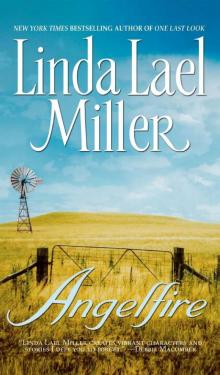 Angelfire
Angelfire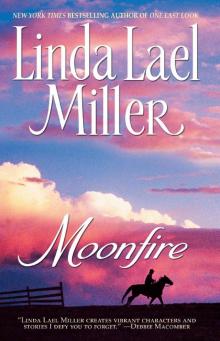 Moonfire
Moonfire The Yankee Widow
The Yankee Widow The Cowboy Way
The Cowboy Way Country Strong--A Novel
Country Strong--A Novel Forever and a Day
Forever and a Day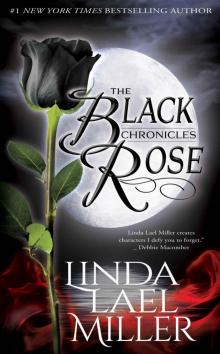 The Black Rose Chronicles
The Black Rose Chronicles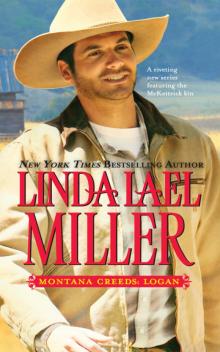 Montana Creeds: Logan
Montana Creeds: Logan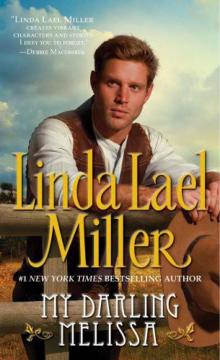 My Darling Melissa
My Darling Melissa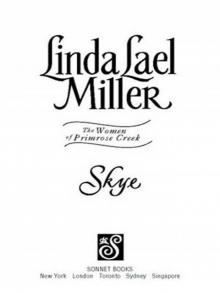 Skye
Skye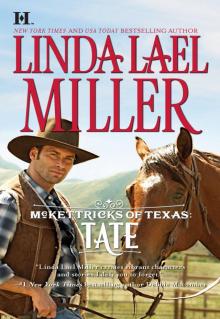 McKettricks of Texas: Tate
McKettricks of Texas: Tate Springwater Seasons
Springwater Seasons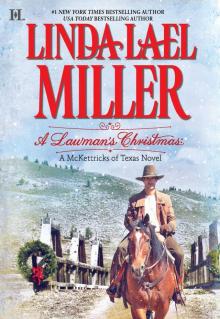 A Lawman's Christmas
A Lawman's Christmas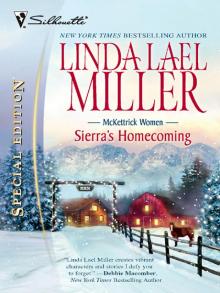 Sierra's Homecoming
Sierra's Homecoming![Parable, Montana [4] Big Sky Summer Read online](http://i1.bookreadfree.com/i/03/22/parable_montana_4_big_sky_summer_preview.jpg) Parable, Montana [4] Big Sky Summer
Parable, Montana [4] Big Sky Summer One Last Weekend
One Last Weekend A Stone Creek Collection, Volume 2
A Stone Creek Collection, Volume 2 Tonight and Always
Tonight and Always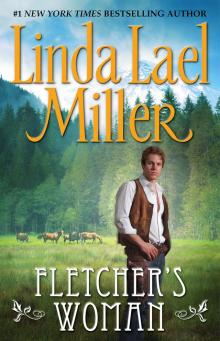 Fletcher's Woman
Fletcher's Woman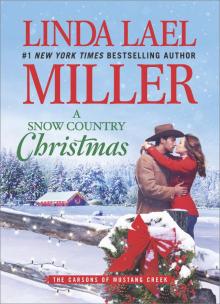 A Snow Country Christmas
A Snow Country Christmas The Last Chance Cafe
The Last Chance Cafe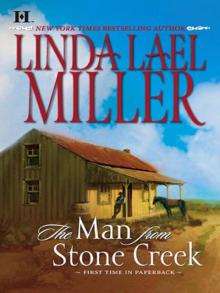 The Man from Stone Creek
The Man from Stone Creek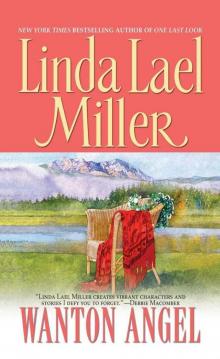 Wanton Angel
Wanton Angel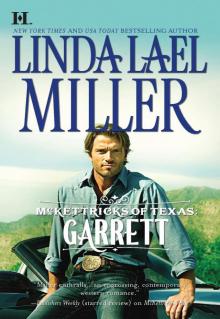 McKettricks of Texas: Garrett
McKettricks of Texas: Garrett Memory's Embrace
Memory's Embrace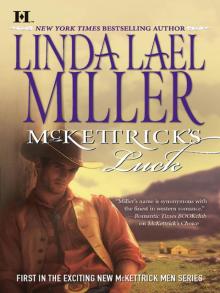 McKettrick's Luck
McKettrick's Luck Pirates
Pirates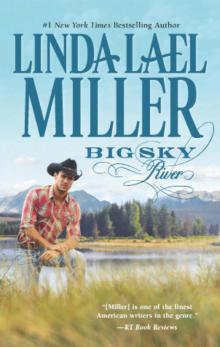 Big Sky River
Big Sky River Willow: A Novel (No Series)
Willow: A Novel (No Series) The McKettrick Legend: Sierra's HomecomingThe McKettrick Way (Hqn)
The McKettrick Legend: Sierra's HomecomingThe McKettrick Way (Hqn) Glory, Glory: Snowbound with the Bodyguard
Glory, Glory: Snowbound with the Bodyguard Two Brothers
Two Brothers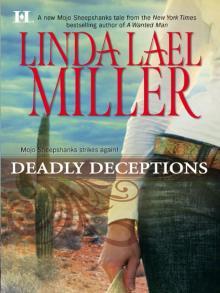 Deadly Deceptions
Deadly Deceptions Big Sky Secrets
Big Sky Secrets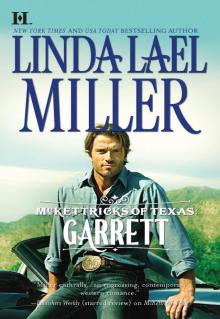 Garrett
Garrett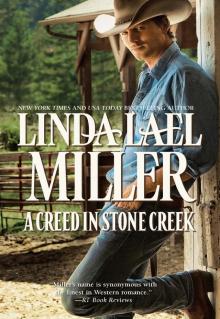 A Creed in Stone Creek
A Creed in Stone Creek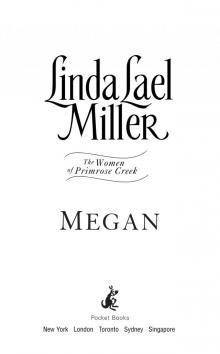 Megan
Megan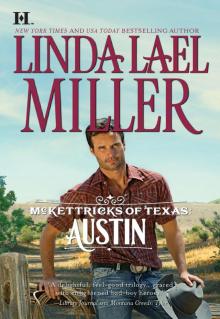 McKettricks of Texas: Austin
McKettricks of Texas: Austin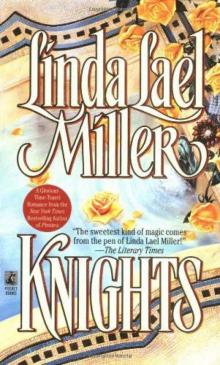 Knights
Knights High Country Bride
High Country Bride More Than Words Volume 4
More Than Words Volume 4 Glory, Glory
Glory, Glory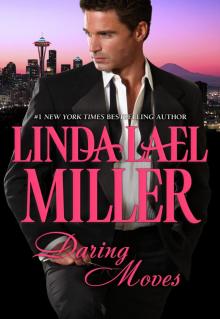 Daring Moves
Daring Moves Lily and the Major
Lily and the Major Courting Susannah
Courting Susannah Banner O'Brien
Banner O'Brien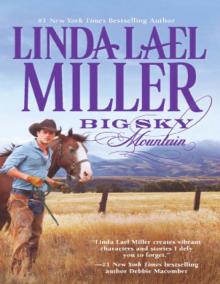 Big Sky Mountain
Big Sky Mountain Linda Lael Miller Bundle
Linda Lael Miller Bundle McKettrick's Pride
McKettrick's Pride A Stone Creek Collection Volume 1
A Stone Creek Collection Volume 1 A Wanted Man
A Wanted Man Big Sky Country
Big Sky Country The McKettrick Legend
The McKettrick Legend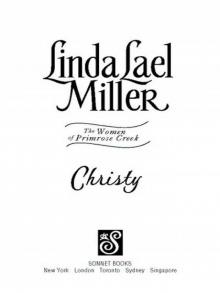 Christy
Christy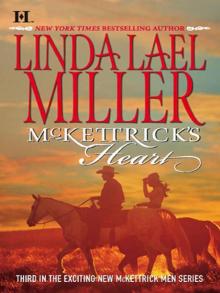 McKettrick's Heart
McKettrick's Heart Resurrection
Resurrection Arizona Heat
Arizona Heat Secondhand Bride
Secondhand Bride Snowflakes on the Sea
Snowflakes on the Sea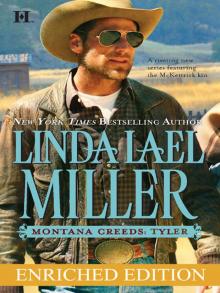 Montana Creeds: Tyler
Montana Creeds: Tyler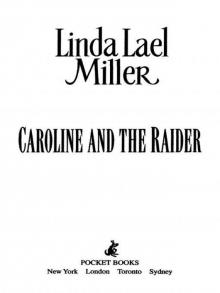 CAROLINE AND THE RAIDER
CAROLINE AND THE RAIDER A Proposal for Christmas: State SecretsThe Five Days of Christmas
A Proposal for Christmas: State SecretsThe Five Days of Christmas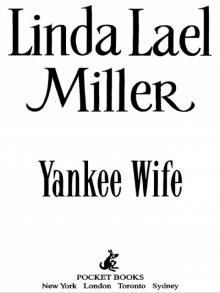 Yankee Wife
Yankee Wife Linda Lael Miller Montana Creeds Series Volume 1: Montana Creeds: LoganMontana Creeds: DylanMontana Creeds: Tyler
Linda Lael Miller Montana Creeds Series Volume 1: Montana Creeds: LoganMontana Creeds: DylanMontana Creeds: Tyler The Christmas Brides
The Christmas Brides McKettricks Bundle
McKettricks Bundle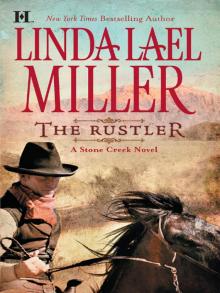 The Rustler
The Rustler Here and Then
Here and Then Only Forever
Only Forever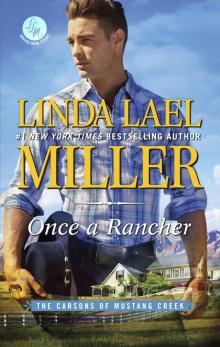 Once a Rancher
Once a Rancher The 24 Days of Christmas
The 24 Days of Christmas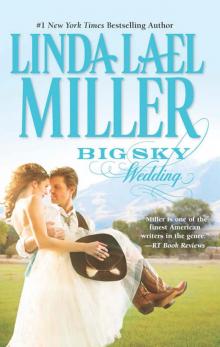 Big Sky Wedding
Big Sky Wedding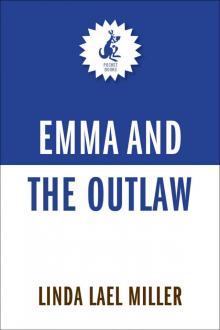 Emma and the Outlaw
Emma and the Outlaw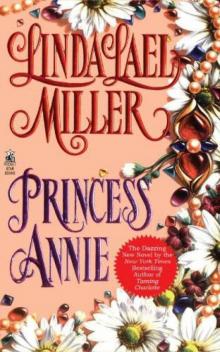 Princess Annie
Princess Annie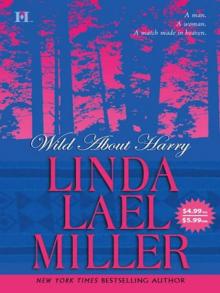 Wild About Harry
Wild About Harry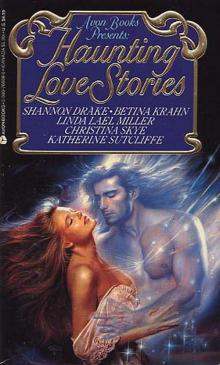 That Other Katherine
That Other Katherine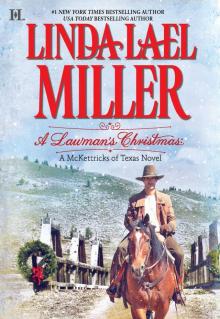 A Lawman's Christmas: A McKettricks of Texas Novel
A Lawman's Christmas: A McKettricks of Texas Novel Just Kate: His Only Wife (Bestselling Author Collection)
Just Kate: His Only Wife (Bestselling Author Collection)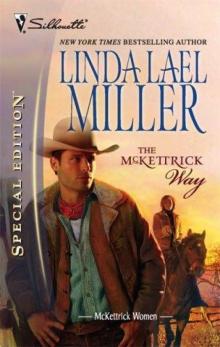 The McKettrick Way
The McKettrick Way Part of the Bargain
Part of the Bargain Taming Charlotte
Taming Charlotte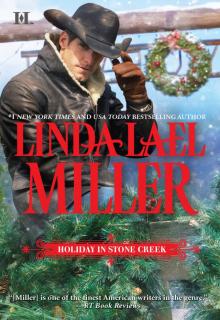 Holiday in Stone Creek
Holiday in Stone Creek One Last Look
One Last Look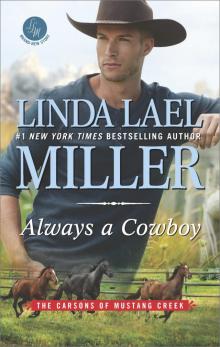 Always a Cowboy
Always a Cowboy Batteries Not Required
Batteries Not Required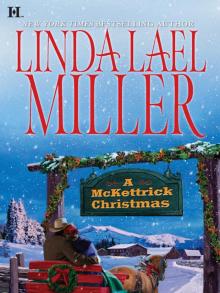 A McKettrick Christmas
A McKettrick Christmas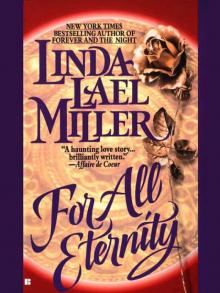 For All Eternity
For All Eternity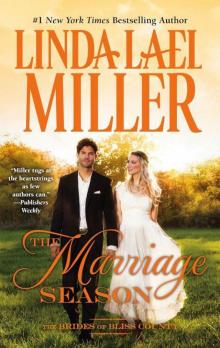 The Marriage Season
The Marriage Season Corbin's Fancy
Corbin's Fancy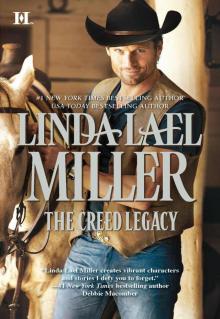 The Creed Legacy
The Creed Legacy Springwater Wedding
Springwater Wedding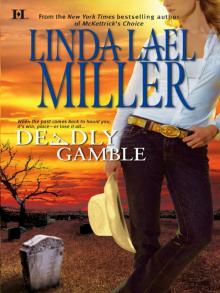 Deadly Gamble
Deadly Gamble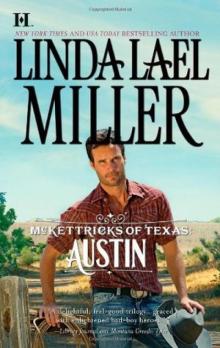 Austin
Austin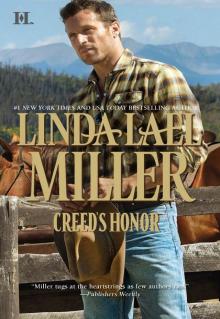 Creed's Honor
Creed's Honor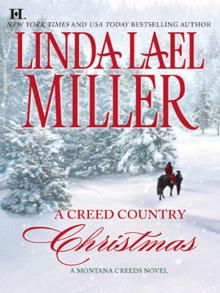 A Creed Country Christmas
A Creed Country Christmas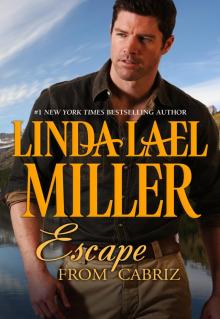 Escape from Cabriz
Escape from Cabriz There and Now
There and Now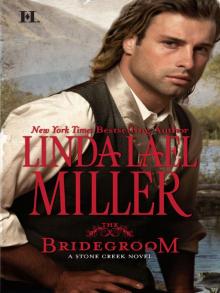 The Bridegroom
The Bridegroom State Secrets
State Secrets Bridget
Bridget